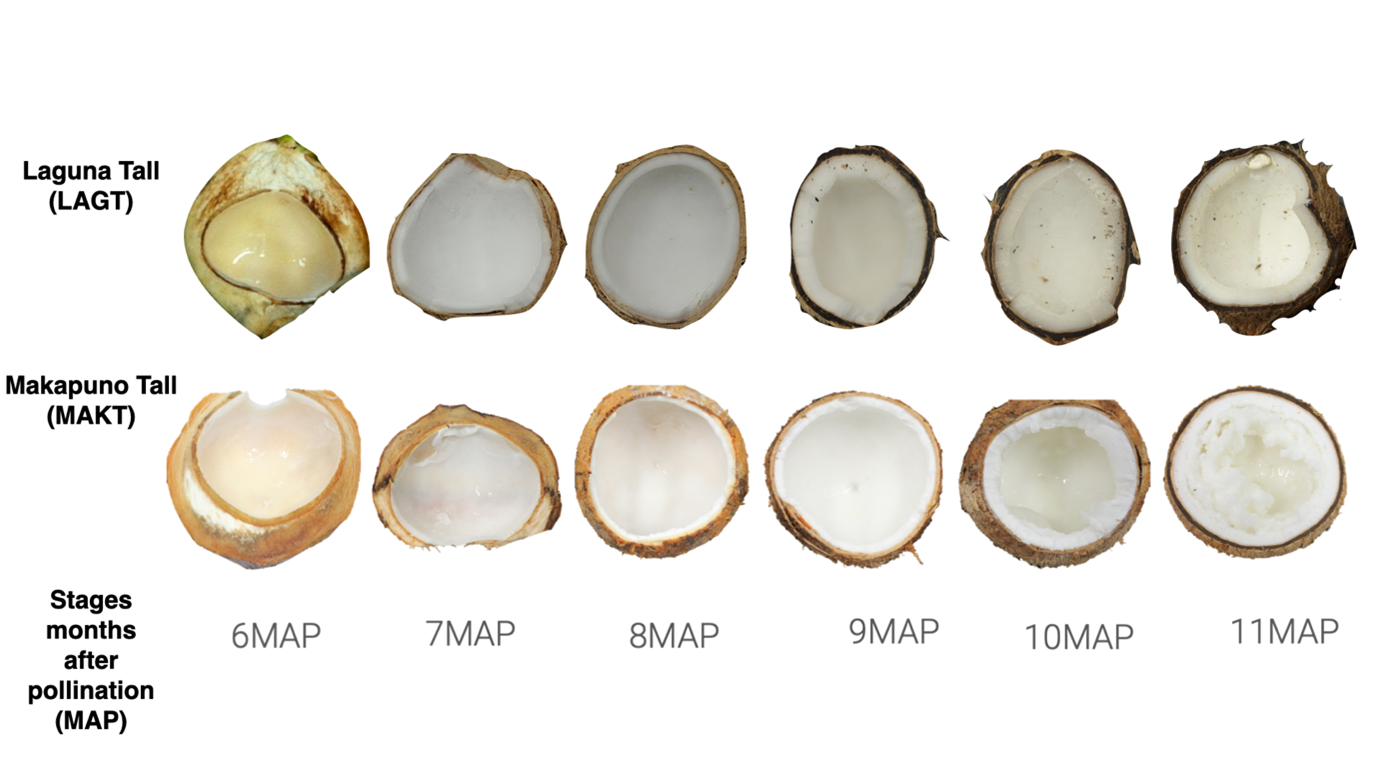Photo: Coconut Genomics Program Project 4
Makapuno Tall (MAKT) or simply ‘makapuno’ is an economically valued crop of the Philippines. Its nut is ten times more expensive than the normal ones in the market due to its thick endosperm. Due to its somewhat endemic or native nature, comparative studies on coconut and makapuno endosperm focusing on genetic, cytological, chemical, biochemical, and a few molecular mechanisms have already been conducted and were predominantly performed by Filipino scientists (Ramirez and Mendoza, 1998). Several biochemical studies had been conducted to fully elucidate the makapuno phenomenon in coconut endosperm. However, differences in glycoprotein profile have not been determined and analyzed. Glycoproteins are essential components of the membrane that provide structural integrity and communication to cells. Knowledge on glycans present and its profile may provide insights and add another layer of explanation on the observed makapuno phenotype. This information will be crucial in identifying genes or metabolites that could aid in creating cultivars with thick endosperm and higher yield concomitant higher profit.
Examining the N-glycan profiles of LAGT and MAKT enriches our understanding of the makapuno phenotype. If MAKT is postulated to have an altered carbohydrate metabolism, then N-glycan profiles of MAKT and LAGT will show difference in its ontogenetic pattern. Hence, this study aims to determine N-glycan profiles of LAGT and MAKT in six developmental stages of solid endosperm.
Prof. Joseph Carmelo K. San Pascual – Study Leader
Prof. Jickerson P. Lado – Co-study Leader
–


